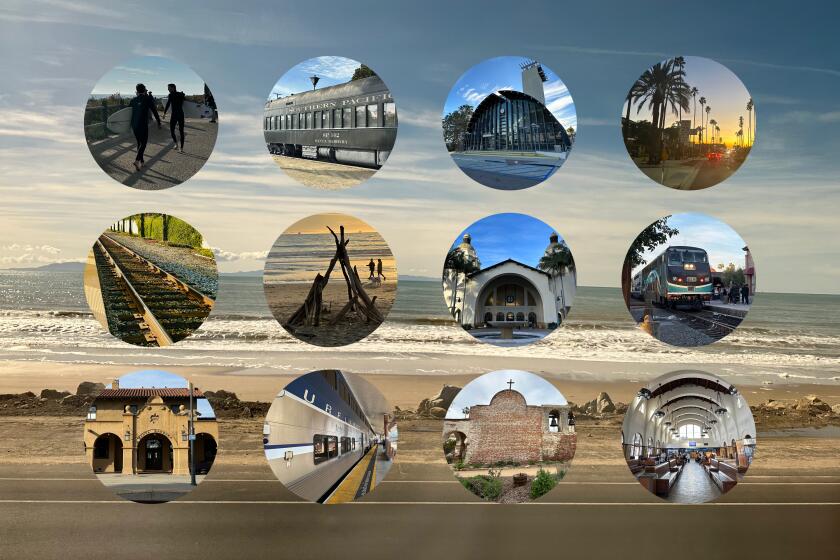Bush’s natural wonder
INSPIRED, HEARTFELT, GLORIOUS -- AND ATYPICAL: They are all valid adjectives for President Bush’s creation last week of the world’s largest marine preserve. Providing protection to 140,000 square miles of coral reefs, atolls and ocean waters that harbor turtles, monk seals and 14 million seabirds, Northwestern Hawaiian Islands National Monument is bigger than all U.S. national parks combined.
In creating it, Bush used a century-old law signed by President Theodore Roosevelt that gives presidents broad powers to establish national monuments. Roosevelt was the force behind the national parks system, and he well understood that saving the nation’s natural treasures for posterity sometimes required the bold move of an instant. At the signing ceremony Thursday, Bush sounded like Roosevelt, speaking of “our duty to use the land and seas wisely.”
But there is some irony to Bush’s achievement. Even as he extends the legacy of Roosevelt -- who established the Hawaiian Island Reservation in 1909 -- Bush is neglecting the system of national forests that Roosevelt did so much to create.
His administration has undermined the Sierra Nevada Framework, a carefully created and widely praised plan, devised over the course of a decade, for managing the forests that extend along California’s eastern spine. Bush ended the “roadless rule,” a ban on road building and logging in the most sensitive areas of national forests that was a legacy of the Clinton administration. Budget cuts to the National Park Service have eroded safety and public use. And every year, the president’s goal of drilling for oil in the Alaskan National Wildlife Refuge resurfaces.
How is it that a president who is so passionate about protecting a magnificent swath of marine life near Hawaii can be so unconcerned about preserving national treasures on the mainland?
One reason, not surprisingly, is politics. No major industries, such as logging or oil, have a stake in the Hawaiian preserve. Fewer than a dozen commercial fishermen will be affected by the establishment of the Hawaiian preserve. Another reason is that Bush was apparently inspired to act after he saw a spellbinding PBS film on the region made by the son of the legendary Jacques Cousteau, whose underwater cinematography equally thrilled and informed a generation of TV-viewing Americans. After viewing the film, according to The Times, Bush rose from his seat, congratulated Jean-Michel Cousteau and asked administration staffers how to protect the region.
Not every worthwhile cause has its own filmmaker. So Bush’s legacy of conservation may not extend to the Lower 48 or Alaska. But that does not make his decision last week any less impressive.
Sign up for The Wild
We’ll help you find the best places to hike, bike and run, as well as the perfect silent spots for meditation and yoga.
You may occasionally receive promotional content from the Los Angeles Times.



